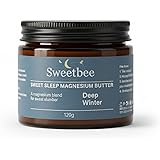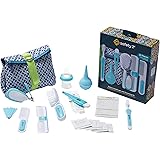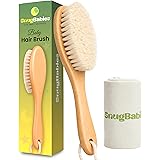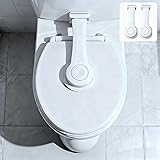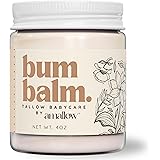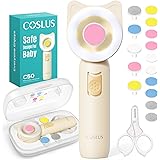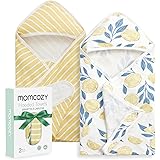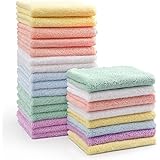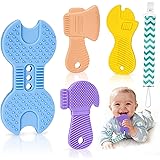Are you truly safeguarding your baby’s delicate world from the unseen perils lurking in everyday products? As the brief but impactful video above aptly highlights, certain items designed for adults simply aren’t suitable for our little ones. This isn’t just a matter of preference; it’s a critical consideration for robust baby health and hygiene. The transition from the womb’s sterile environment to the external world is a monumental journey for an infant, and every choice we make about their care products significantly impacts their nascent immune system and developing physiology.
Understanding the Unique Biology of Infant Skin
Firstly, to grasp why specific natural baby products are indispensable, one must appreciate the intricate differences between infant and adult skin. A baby’s skin, often likened to a fragile, unwritten parchment, is approximately 30% thinner than an adult’s. This anatomical distinction means it possesses a less developed epidermal barrier, the skin’s outermost protective layer. Consequently, infants are more susceptible to transepidermal water loss, leading to dryness, and have a higher absorption rate for substances applied topically. This permeability means irritants, chemicals, and even fragrances can penetrate more readily, potentially triggering sensitivities, allergic reactions, or systemic exposure. The pH balance of a newborn’s skin is also higher than an adult’s, tending towards neutral, making it more vulnerable to changes and requiring products that respect this delicate physiological state. Imagine a newly painted wall versus one that has been varnished and cured over years; the former is far more impressionable and prone to damage.
The Hidden Dangers of Adult Detergents and Hygiene Products
Beyond the structural differences, the formulations of adult hygiene products and laundry detergents are often engineered for adult needs, not infant vulnerability. These products frequently contain a cocktail of potent chemicals designed to tackle tough stains or persistent body odors. Consider the robust surfactants found in conventional laundry detergents, formulated to strip away grime from durable fabrics. While effective for adult clothing, these same compounds, when lingering in fabrics, can irritate a baby’s sensitive skin, leading to conditions like contact dermatitis. Furthermore, many adult shampoos, soaps, and lotions are laden with artificial fragrances, parabens, phthalates, and harsh preservatives. These ingredients, while generally safe for mature skin, can act as potent allergens or endocrine disruptors in infants, whose detoxification systems are still maturing. It’s like trying to extinguish a small campfire with a fire hose; the force is simply too overwhelming and unnecessary for the delicate situation.
Decoding Harmful Ingredients to Avoid in Baby Care
Crucially, understanding specific ingredients is paramount for discerning parents. When selecting items for baby health and hygiene, be vigilant. Look out for:
- Phthalates: Often found in fragrances, these chemicals are linked to hormonal disruptions.
- Parabens: Used as preservatives, they can mimic estrogen and are a concern for endocrine health.
- Sulfates (SLS/SLES): These harsh detergents create lather but can strip natural oils from skin and hair, causing dryness and irritation.
- Synthetic Fragrances: Often proprietary blends, they can contain hundreds of undisclosed chemicals, many of which are known allergens.
- Dyes: Artificial colorants add no benefit and can be sources of irritation.
- Formaldehyde-releasing preservatives: While not formaldehyde itself, these release the chemical over time and are known carcinogens and skin irritants.
The goal is to provide a clean environment without introducing new risks, a balance meticulously maintained through informed choices.
Embracing the Sanctuary of Natural Ingredients for Infants
This brings us to the core of the video’s message: the necessity of products with natural ingredients. These formulations prioritize gentle, plant-derived components that work in harmony with a baby’s delicate physiology. For example, instead of harsh chemical surfactants, natural baby washes often utilize mild, coconut-derived cleansers that remove impurities without stripping essential moisture. Emollients like shea butter, calendula extract, chamomile, and aloe vera provide soothing, hydrating benefits, supporting the skin’s natural barrier function. These ingredients are chosen for their hypoallergenic properties and their long history of safe use in skincare. They nurture rather than assault, providing a comforting touch akin to a soft, woolen blanket on a cold night, as opposed to a scratchy, synthetic one.
The Power of Plant-Based Formulations in Baby Hygiene
Beyond skin health, natural ingredients extend to products like laundry detergents specifically designed for infants. These typically avoid strong perfumes, optical brighteners, and dyes, relying instead on plant-derived enzymes and mineral-based cleansers to remove stains effectively yet gently. The absence of harsh residues ensures that clothing, which is in constant contact with a baby’s skin, remains non-irritating. When considering natural baby products for something as critical as germ protection, brands like Morisons Baby Dreams exemplify this commitment, formulating solutions that are “tough on germs” while remaining exquisitely gentle on fragile skin, demonstrating that efficacy doesn’t have to come at the expense of safety.
Navigating the World of Baby Hygiene Product Choices
Ultimately, making informed decisions about baby hygiene products requires a systematic approach. It’s not merely about selecting a product labeled “natural,” but delving deeper into its composition and intended purpose. Consider the following categories:
Baby Laundry Detergent: A Foundation of Cleanliness
Firstly, prioritize detergents that are specifically formulated for infants, often labeled “hypoallergenic” or “dermatologist tested for sensitive skin.” These typically contain fewer harsh chemicals, no artificial fragrances, and rinse away cleanly, leaving minimal residue on clothing. An analogy might be using a delicate soap for silk rather than a heavy-duty cleaner, ensuring the fabric’s integrity is maintained.
Baby Wipes and Diaper Care: The Front Line of Defense
Beyond this, wipes should be free of alcohol, parabens, and strong fragrances. Look for those enriched with natural ingredients like aloe or chamomile. Diaper creams should create a protective barrier, ideally with zinc oxide or petroleum jelly, but also consider those with natural soothing agents to prevent and treat diaper rash effectively. The aim is to create a resilient, protective layer, much like a well-tended garden wall guarding against the elements.
Baby Washes and Shampoos: Gentle Cleansing Rituals
Moreover, choose tear-free formulas that are pH-balanced to match a baby’s skin. Opt for washes with natural, mild surfactants and hydrating ingredients. These products should cleanse without stripping the skin’s natural moisture barrier, ensuring the post-bath glow is one of health, not irritation.
Baby Lotions and Oils: Nurturing the Epidermal Barrier
Finally, for moisturizing, select lotions or oils with minimal ingredients, such as calendula, oat extract, or pure, unscented plant-based oils like jojoba or almond oil. These aid in replenishing moisture and supporting the skin’s protective function, essential for maintaining soft, supple skin that is less prone to dryness and irritation. They are the gentle rain that nourishes the earth, not the deluge that erodes it.
A Holistic Approach to Baby Health and Hygiene
Crucially, product selection is just one facet of a comprehensive approach to baby health and hygiene. A holistic strategy also encompasses regular bathing routines, ensuring water temperature is appropriate, and avoiding excessive bathing that can strip natural oils. Maintaining a clean nursery environment, regularly washing toys, and practicing good hand hygiene as caregivers are equally vital. It’s about creating an entire ecosystem of care, where every element contributes to the baby’s well-being, much like a meticulously calibrated clock where each gear works in perfect synchronicity.
Ultimately, the goal is to foster an environment where a baby’s delicate system can thrive, unburdened by unnecessary chemical exposures. Choosing gentle, natural products for all aspects of baby health and hygiene is not merely a trend; it’s a foundational principle for nurturing these “little angels” and providing them with the purest start in life, ensuring their delicate needs are met with that “little extra” care they inherently deserve.


